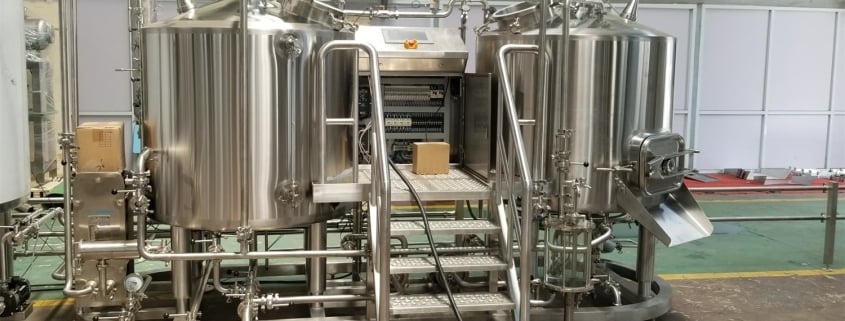Choosing the Best Commercial Kombucha Equipment
Overview of Commercial Kombucha Equipment
Kombucha has transitioned from a niche wellness trend to a mainstream beverage enjoyed by millions. With the rising demand, kombucha producers are scaling up their operations, and commercial kombucha equipment plays a crucial role in meeting production needs efficiently. From brewing tanks to bottling machines, having the right equipment can make or break your kombucha business. This guide dives deep into everything you need to know about commercial kombucha equipment, from choosing the right types to setting up a facility.
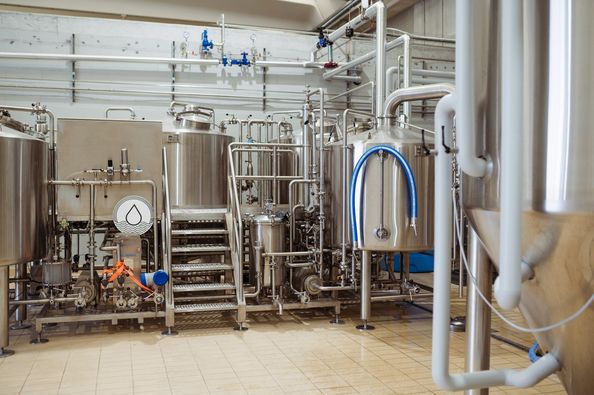
Why Invest in Commercial Kombucha Equipment?
If you’re serious about scaling your kombucha production, investing in commercial equipment is a no-brainer. Here’s why:
- Increased Efficiency: Hand-brewing is great for hobbyists, but as demand grows, manual processes become unsustainable. Commercial equipment automates tasks like brewing, fermenting, bottling, and labeling, saving time and labor costs.
- Consistency in Quality: Customers love consistency. Commercial-grade equipment ensures uniform fermentation conditions, resulting in a consistent product every time. From precise temperature controls to automated filling systems, you’ll deliver a reliable taste and quality.
- Scalability: Whether you’re supplying to local cafes or nationwide retailers, commercial kombucha equipment helps you scale operations seamlessly. You can brew larger batches without compromising quality.
- Regulatory Compliance: Commercial equipment often comes with certifications and features that help you meet food safety and sanitation standards, which are critical for retail and wholesale distribution.
So, is it worth the investment? Absolutely, if you plan to grow your kombucha business while maintaining high-quality standards.
Types of Commercial Kombucha Equipment
To streamline your production, you’ll need various types of equipment tailored for kombucha brewing. Here’s an overview:
1. Brewing Vessels
Brewing vessels are the backbone of kombucha production. These large tanks, often made of stainless steel, are designed for large-scale fermentation. They offer temperature controls and easy cleaning mechanisms, making them ideal for commercial use.
2. Fermentation Tanks
Fermentation tanks are where the magic happens. These tanks must allow for proper aeration while preventing contamination. Look for ones with built-in temperature controls and airtight seals for optimal results.
3. Filtration Systems
Filtration systems are essential for removing impurities, ensuring clarity, and improving the shelf life of your kombucha. Options include mechanical filters and carbon filtration systems.
4. Bottling Machines
Bottling machines automate the filling and capping processes. They can handle hundreds of bottles per hour, making them indispensable for commercial operations.
5. Labeling Machines
An eye-catching label is crucial for branding. Labeling machines streamline the process, ensuring precision and speed in applying labels to bottles.
6. Cooling and Storage Equipment
Refrigeration units and cold storage systems keep your kombucha fresh and extend its shelf life. Proper storage prevents over-fermentation and maintains the desired taste.
7. Cleaning Equipment
Cleaning is a critical part of kombucha production. Equipment like Clean-In-Place (CIP) systems ensures your brewing and fermentation tanks are sanitized efficiently and meet food safety standards.
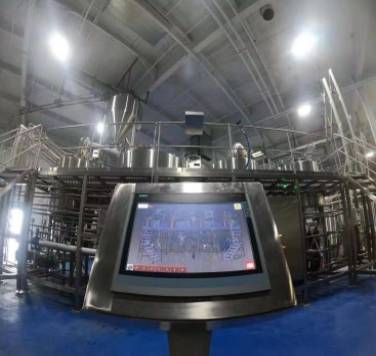
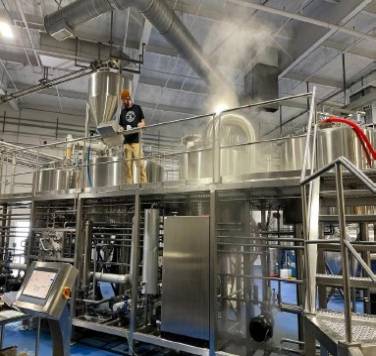
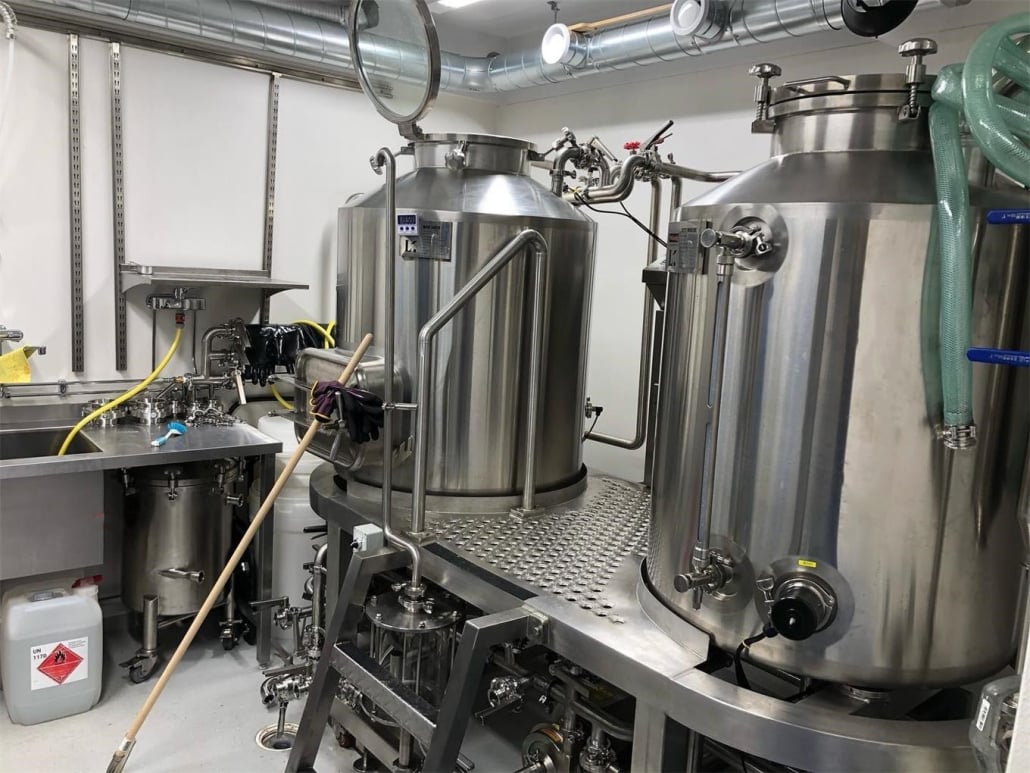
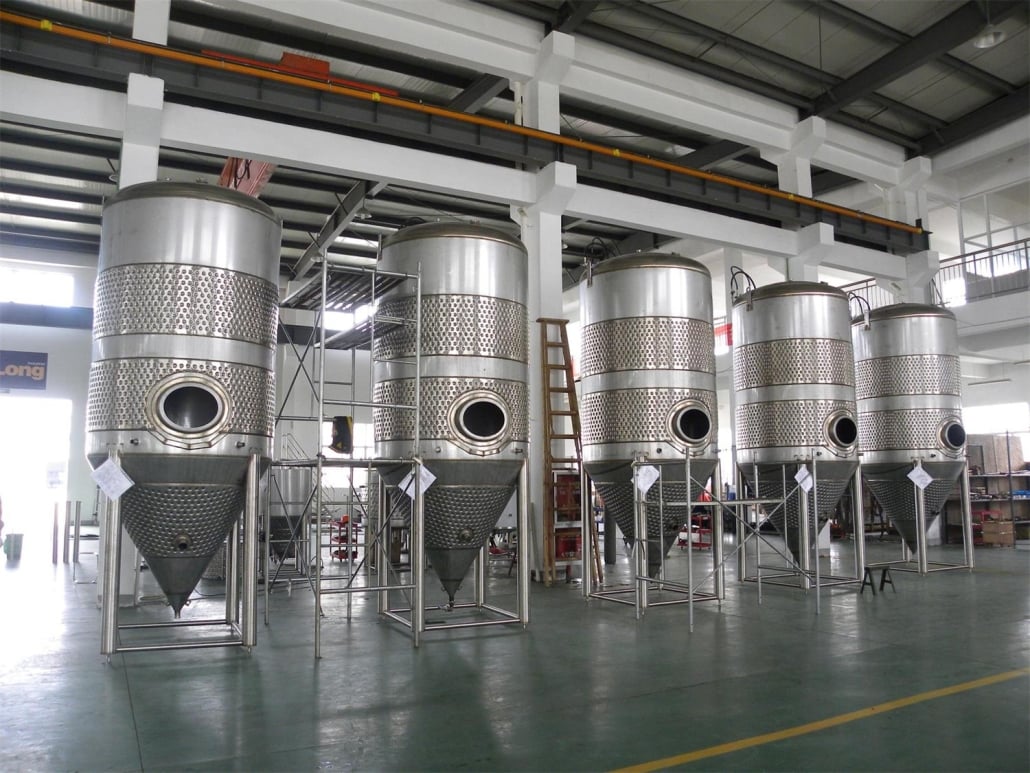
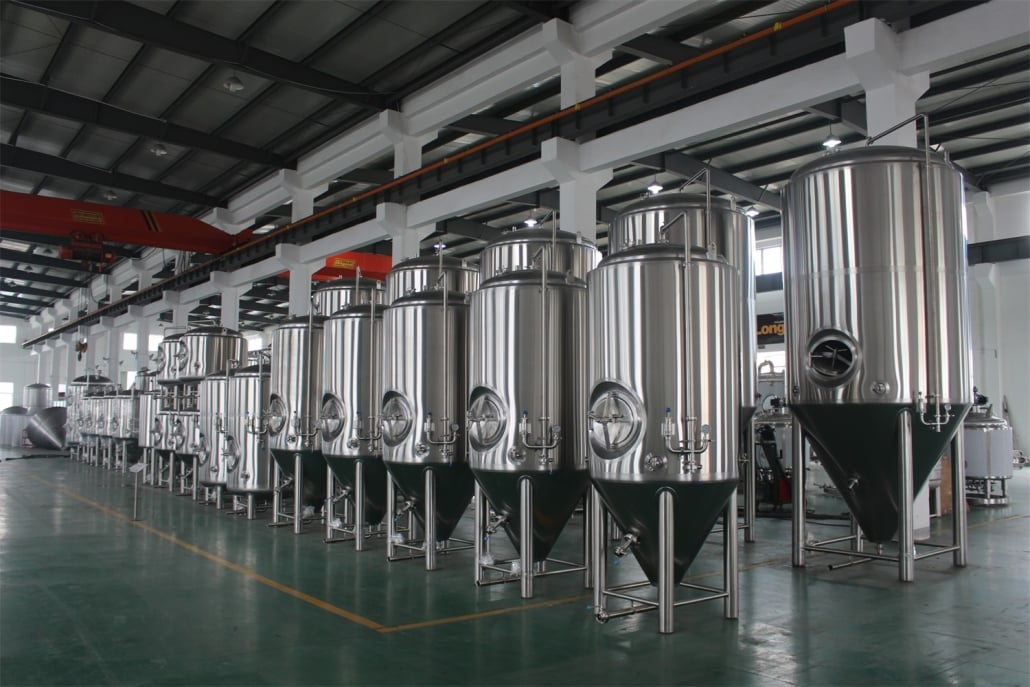
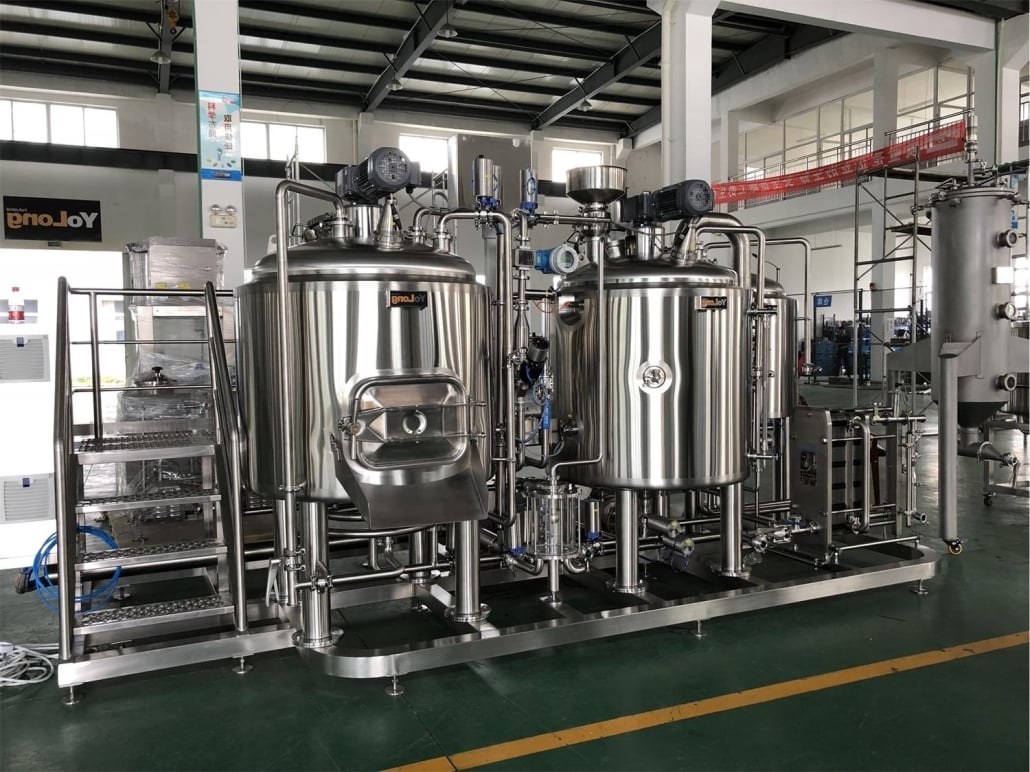
Factors to Consider When Choosing Commercial Kombucha Equipment
Choosing the right equipment can be overwhelming, especially with so many options available. Here are key factors to consider:
- Capacity Requirements: Determine your production volume and choose equipment that meets your current and future needs. Oversizing or undersizing can lead to inefficiencies.
- Material Quality: Equipment made of stainless steel is durable, corrosion-resistant, and easy to clean. Ensure it meets food-grade standards.
- Automation Level: Decide how much automation you need. Fully automated systems are faster but come with higher upfront costs. Semi-automated options might be more budget-friendly.
- Regulatory Compliance: Ensure the equipment meets local health and safety standards. Certifications like FDA or ISO can be useful.
- Ease of Maintenance: Choose equipment with readily available spare parts and user-friendly cleaning systems to minimize downtime.
- Budget: While quality equipment is an investment, ensure it aligns with your budget. Compare prices and features to find the best value.
Top Commercial Kombucha Equipment Brands
| Brand | Specialty | Key Features |
|---|---|---|
| BrewBuilt | Brewing tanks | Stainless steel, customizable sizes, temperature control |
| GW Kent | Fermentation tanks | Food-grade material, airtight seals, easy cleaning |
| XpressFill | Bottling machines | Affordable, semi-automatic, compact design |
| Pack Leader USA | Labeling systems | High-speed, precision labeling, customizable templates |
| Alfa Laval | Filtration systems | Advanced filtration technology, energy-efficient |
Tips for Setting Up Your Commercial Kombucha Facility
| Tip | Details |
|---|---|
| Select the Right Location | Ensure the facility has sufficient space, ventilation, and water access. |
| Plan Workflow Efficiently | Organize equipment layout for a smooth production flow. |
| Focus on Sanitation | Invest in CIP systems and dedicate areas for cleaning and storage. |
| Monitor Temperature and Humidity | Install HVAC systems for consistent brewing conditions. |
| Invest in Training | Train your staff to operate and maintain equipment effectively. |
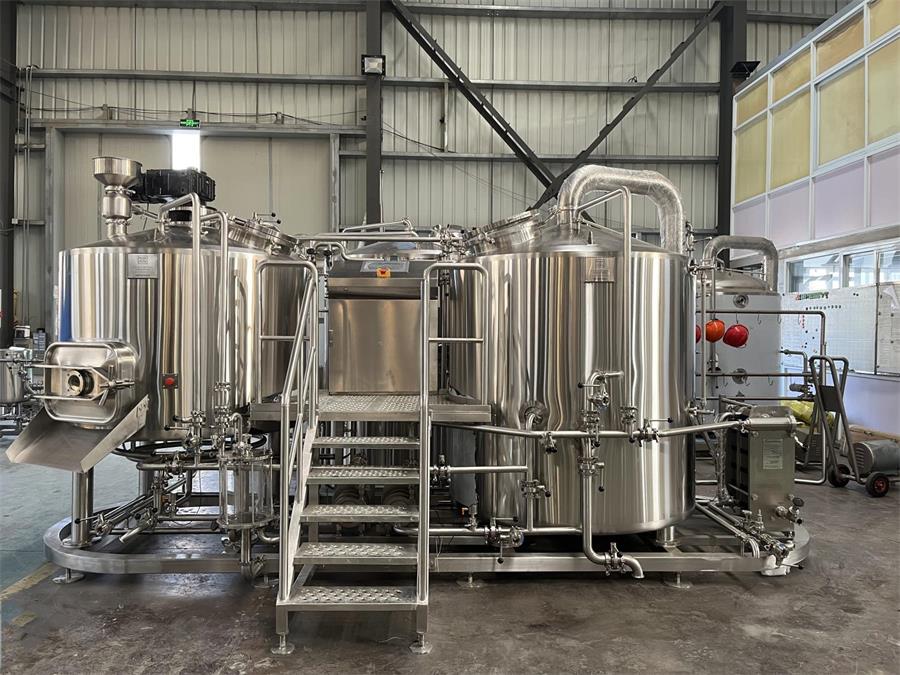
Top Suppliers of Commercial Kombucha Equipment
| Supplier | Location | Key Offerings |
|---|---|---|
| Beverage Craft | USA | Brewing and fermentation tanks |
| Probrew | USA | Customizable kombucha systems |
| Apex Brewery Supply | USA | Bottling and labeling machines |
| Sparkling BevTech | UK | Advanced filtration systems |
| Custom Metalcraft | USA | Turnkey kombucha production solutions |
FAQ
| Question | Answer |
|---|---|
| What is the best material for kombucha equipment? | Stainless steel is preferred for its durability, hygiene, and corrosion resistance. |
| How much does commercial kombucha equipment cost? | Prices range from $10,000 to $100,000+ depending on the type and size of the equipment. |
| Can I start small and scale up later? | Yes, start with semi-automated systems and upgrade as your production grows. |
| Is it necessary to invest in a CIP system? | Yes, CIP systems ensure efficient cleaning and regulatory compliance. |
| What certifications should I look for? | Look for FDA, ISO, or HACCP certifications for safety and quality assurance. |

